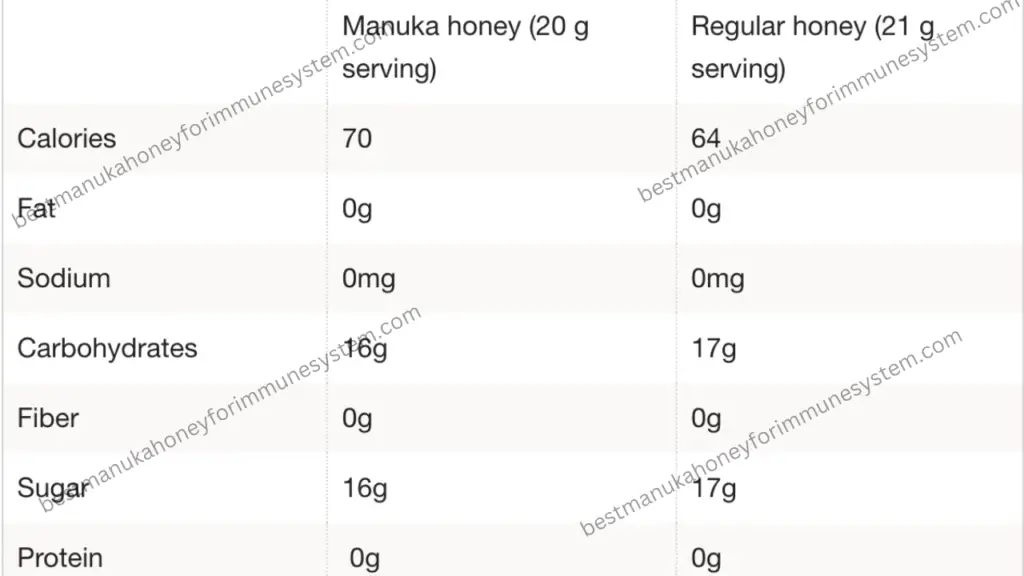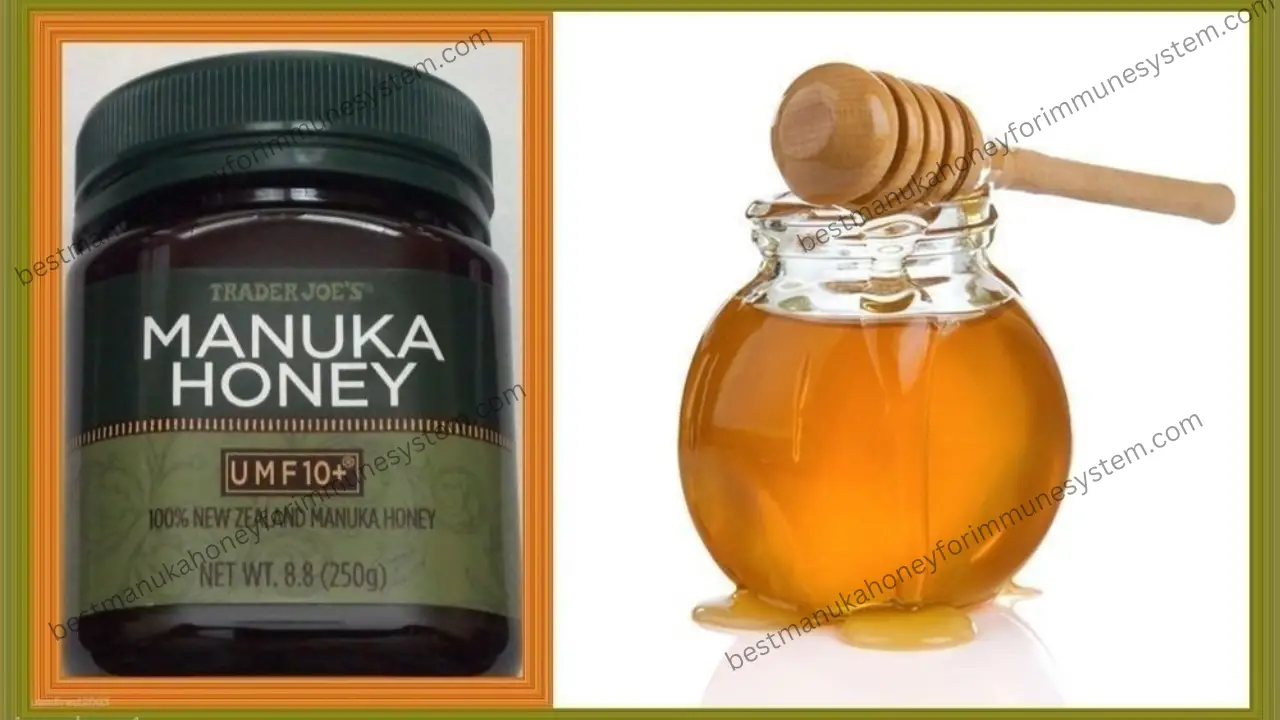When it comes to honey, not all are created equal. Manuka Honey, a type of honey that comes from New Zealand, has been gaining in popularity due to its unique properties and potential health benefits.
But what makes Manuka Honey different from Regular Honey?
In this section, we will explore the differences between Manuka Honey and Regular Honey, including their grading systems, properties, and health benefits.
By understanding these distinctions, you will be able to make an informed choice when it comes to choosing the honey that’s right for you.
Key Takeaways:
- Manuka Honey and Regular Honey have distinct differences in their properties and health benefits.
- The grading system for Manuka Honey, known as UMF, is used to measure its antibacterial activity.
- Manuka Honey has the potential to support wound healing, boost the immune system, and have antibacterial effects.
- Pure Manuka Honey is different from Regular Honey in terms of its source, processing, and quality standards.
- Understanding the differences between Manuka Honey and Regular Honey can help you make a more informed choice when it comes to choosing honey for your daily consumption.
The Benefits of Manuka Honey
Manuka honey has been praised for its potential health benefits and unique properties. Here are some reasons why you may want to consider using Manuka Honey instead of Regular Honey:
- Antibacterial properties: Manuka Honey has been found to have higher antimicrobial activity than Regular Honey due to the presence of methylglyoxal and hydrogen peroxide. This makes it a popular choice for wound healing and fighting off harmful bacteria.
- Immune-boosting effects: Some studies have suggested that Manuka Honey may have potential immune-boosting effects, which can help protect against infections and support overall health.
- Wound healing capabilities: Manuka Honey has been used for centuries as a natural healing agent due to its anti-inflammatory and antibacterial properties. It may help promote tissue repair and reduce the risk of infection.
- UMF grading system: Manuka Honey is graded based on the Unique Manuka Factor (UMF), which measures the concentration of methylglyoxal and other compounds. A higher UMF rating indicates a higher potency of antibacterial activity, making it a good choice for medicinal use.
- Rich flavor: Manuka Honey has a distinct taste that can range from earthy and slightly bitter to sweet and caramel-like. This makes it a versatile ingredient for cooking and baking, as well as a tasty addition to your morning tea or toast.
While Regular Honey also has some potential health benefits, such as its antioxidant properties and cough-suppressing effects, Manuka Honey may offer more potent and targeted benefits for your health.
However, it’s important to note that Manuka Honey can be more expensive than Regular Honey, so be sure to consider your budget and priorities when making a choice.

Why Choose Manuka Honey?
Overall, Manuka Honey may be a better choice than Regular Honey for its unique properties and potential health benefits.
Its antibacterial activity and wound healing capabilities make it a popular choice for medicinal use, while its rich flavor and versatility make it a tasty addition to your diet.
However, it’s important to choose a pure Manuka Honey with a high UMF rating to ensure that you’re getting the most potent and effective product.
Understanding the Differences: Manuka Honey vs. Regular Honey
When it comes to choosing between Manuka Honey and Regular Honey, it’s important to understand the differences in their properties, grading systems, and potential health benefits.
Firstly, Manuka Honey is produced in New Zealand and Australia from the nectar of the Manuka bush (Leptospermum scoparium).
This honey is considerably different from regular honey due to its high concentration of methylglyoxal (MGO), which gives it its unique antibacterial properties.
Regular Honey, on the other hand, is produced from the nectar of various flowers and does not typically contain the same active compounds found in Manuka Honey.
Secondly, the grading system for Manuka Honey is different from that of Regular Honey. Manuka Honey is graded using the Unique Manuka Factor (UMF), which rates the honey’s antibacterial activity.
The higher the UMF rating, the more potent the honey is in terms of its antibacterial properties. Regular Honey, on the other hand, is typically graded by its color and flavor.
Thirdly, while both types of honey offer potential health benefits, Manuka Honey is believed to have a more significant impact due to its high concentration of active compounds.
These potential benefits include wound healing capabilities, potential immune-boosting effects, and antibacterial properties.
However, it’s worth noting that the health benefits of Manuka Honey are still being researched, and more studies are needed to understand its full potential.
Ultimately, the choice between Manuka Honey and Regular Honey comes down to personal preference. If you’re looking for a honey with unique properties and potential health benefits, Manuka Honey might be the better choice.
However, if you prefer a milder flavor and don’t necessarily need any additional health benefits, Regular Honey is a good option.

The Verdict: Which Honey is Better?
After examining the differences and benefits of Manuka Honey and Regular Honey, the verdict is in. While both types of honey offer unique properties and potential health benefits, Manuka Honey appears to have the edge.
One major factor that sets Manuka Honey apart from Regular Honey is its antibacterial activity. The UMF grading system ensures that the honey is pure and potent, making it a popular choice for wound healing and immune-boosting purposes.
However, that’s not to say that Regular Honey doesn’t have its own strengths. It’s a great natural sweetener with potential antioxidant and anti-inflammatory properties.
Ultimately, the choice between Manuka Honey and Regular Honey comes down to personal preference and health needs.
If you’re looking for a honey with potent antibacterial properties and a higher likelihood of potential health benefits, then Manuka Honey is the clear winner.
On the other hand, if you simply want a sweetener with potential health benefits and a pleasant taste, then Regular Honey might be the better choice for you.

Conclusion
In conclusion, both Manuka Honey and Regular Honey offer unique properties and potential health benefits. The choice between the two depends on personal preference and health needs.
Regardless of which honey you choose, incorporating it into your diet can be a great way to add a natural, nutritious sweetener to your meals and drinks.
So whether you go for the antibacterial potency of Manuka Honey or the natural sweetness of Regular Honey, there’s no denying that both offer a delicious and nutritious addition to your daily routine.
I suggest after use pls store it in a safe place for future use.
FAQ
What is the difference between Manuka Honey and Regular Honey?
Manuka Honey is a type of honey sourced from New Zealand that is known for its unique properties, including higher antibacterial activity. Regular Honey, on the other hand, refers to honey produced from various floral nectar sources. The key distinction lies in the composition and potential health benefits.
What are the health benefits of Manuka Honey?
Manuka Honey has various potential health benefits. It is believed to have antibacterial properties, which may help in wound healing and fighting bacteria. It can also potentially support immune function and provide antioxidant effects. However, it is important to consult with a healthcare professional to understand its specific benefits for your individual needs.
How is Manuka Honey graded?
Manuka Honey is graded using the Unique Manuka Factor (UMF) system, which measures its antibacterial activity. The UMF rating indicates the level of the non-peroxide antibacterial activity in the honey. The higher the UMF rating, the stronger the antibacterial properties of the honey.
Can Manuka Honey be used as a natural remedy?
Yes, Manuka Honey is often used as a natural remedy due to its potential antibacterial and wound healing properties. It can be applied topically to minor cuts, wounds, or skin irritations. However, it is important to seek proper medical advice for serious or persistent conditions.
Can Regular Honey provide similar health benefits?
While Regular Honey does offer certain health benefits, such as being a natural sweetener and potential source of antioxidants, it generally does not have the same level of antibacterial activity as Manuka Honey. However, Regular Honey can still be a part of a healthy diet and lifestyle.
Also Read

